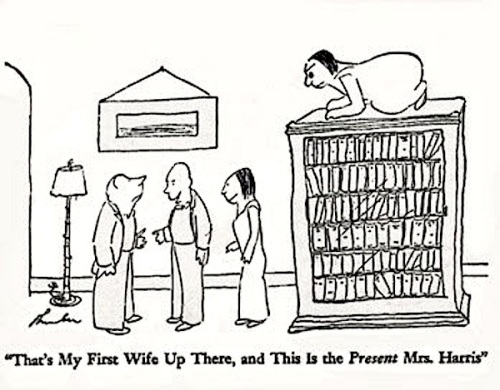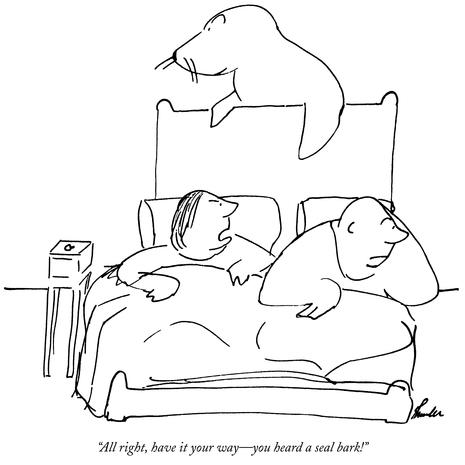Greetings from We the North, where it is currently 41° F, with green grass! Even Santa scratched his head last night, wondering which side of the border he was on.
My pleasure today to introduce another stellar Canadian crime writer - Jayne Barnard - with a topic that blew me away. Some of you know I write epic fantasy as well as crime, and happily for readers, so does Jayne. So you can imagine my delight when I read this post and Jayne agreed to share it with us today on SleuthSayers.
We writing instructors always talk about The Hero's Journey in fiction. But did you ever wonder about the Heroine's? Jayne makes the case using crime fiction, and I am wowed by the brilliance of it. Take it away, Jayne…
— Melodie
Sleuthing and the Heroine's Journey
by J.E. Barnard
Here's a new truism for you: a Hero can be halfway through his Quest before a Heroine gets out the door.
And no, it's not because women are always late.
Males are expected to go out questing and few look askance if they do; females are expected to tend the hearth and the children, maintaining the home for the male's triumphal return. Before she can leave, the Heroine must first wrap up or delegate all the responsibilities tying her to normal life.
For the fictional sleuth, those gender expectations make for distinctly different heroic journeys through the crime-solving world.
Whether hard-hitting like a Hammett hero or cerebral as Hercule Poirot, male detectives generally undertake their heroic crime-solving from a place of relative strength and comfort, with skills and allies already in place, and a secure home to return to. They receive, in Joseph Campbell's journey model, a Call to Adventure that, once they overcome initial reluctance to leave their comfort zone, ultimately draws them into the heroic quest: the hunt for a villain or the race to save a (present or future) victim. Along the way they meet a good woman, a bad one, face off against a father figure or more powerful male, overcome some dangers to gain victory, and return to their comfortable world stronger and more respected, if not necessarily wiser.
Sound familiar? It's the baseline for almost every English-language detective story ever published, and almost every movie ever made.
Where a heroine sets foot in that story her role, as Campbell put it, is to "realize that she's the place that people are trying to get to."
Passive, not active.
In 1990, the acclaimed feminist scholar Maureen Murdoch wrote "The Heroine's Journey" to explicate the still-radical theory that women - in life and in fiction - need not follow the male-structured Hero's Journey, but could chart their own course, taking into account the entangled societal expectations and responsibilities that must be managed before the Heroine was free to undertake a Journey that was both outer progress and inner development. As academic Mega Rogers puts it, "The hero begins his journey with a strong sense of self-preservation and ultimately embarks on an external descent, then return to achieve individuation. In contrast, the heroine begins her story lacking a sense of self, giving too much energy to the needs and opinions of others and embarks upon an internal journey of descent from which she travels outward to achieve her individuation."
Plainly put, the first stage of the Heroine's Journey happens when she gets disillusioned by, or is forced out of, the passive, culturally supported, stereotypical feminine role.
Until fairly recently, fictional female sleuths had two choices: be as tough and unencumbered as any man, like Sara Paretsky's V.I. Warshawski, or be both unencumbered by domestic duties and simultaneously able to do their sleuthing on the home front, as did Christie's Miss Marple and Wentworth's Miss Silver. For both models of female sleuth there wasn't a lot of journeying, heroic or otherwise.
I can almost hear the readers crying out, "What about Nancy Drew?" To which I reply with more questions: did Nancy get forced out of a place of comfort? Did she have responsibilities she couldn't shelve to go sleuthing? Did she have an inner journey along with her outer one? The answer to all three is 'No.' She might have been a good sleuth but she wasn't on a Heroine's Journey. The home she came back to was the same safe place she'd left, with no inner growth (and not much outer advancement) demanded.
The modern female sleuth's journey, like the wider Heroine's Journey, is more than a hearth-bound, small-village imitation of the Hero's Journey. It's been shaping women's lives forever and crime fiction since the mid-1950s, when Mary Stewart started writing romantic suspense about heroines who had jobs instead of children. These heroines traveled, tackled mountains and foreign languages, detected anomalous behaviors, formulated theories of crime, decided for themselves who was trustworthy and who was potentially dangerous, and faced killers without fainting or falling into the nearest hero's arms. As Sleuthsayers' regular blogger Melodie Campbell wrote earlier this year, "Mary Stewart's protagonists had courage and resourcefulness. They fought back when threatened. They risked their lives rescuing large animals (This Rough Magic) and even men (The Moonspinners.) This was not only unusual for the time - it was absolutely groundbreaking."
Following in Mary Stewart's keystrokes, crime fiction authors began to let their heroines leap - or creep - out into the world. Even the redoubtable Dame Ngaio Marsh gave Troy Alleyn, wife of her longstanding male detective, a chance at her own journey. 1968's 'A Clutch of Constables' (the 25th book in the series) send Troy on a river cruise that led her into dangerous waters. It wasn't fully a Heroine's Journey as Troy was already quite independent. Further, the tale lacked introspection about her social role even while she puzzled out the mysterious happenings on board the riverboat. In the end, Inspector Alleyn appeared in his habitual heroic role to wrap things up.
That book, however, bridges the gap between the old, passive, heroine-as-adjunct model and the new: a heroine active in crime solving, stretching her skills and forging her own path.
Around the time Ngaio Marsh stopped writing, Elizabeth Peters/Barbara Mertz took up the challenge, expanding the fictional sleuthing Heroine's Journey through her Vicky Bliss romantic suspense series, and her Amelia Peabody historical/satirical adventures. Vicki's involvement in crime ultimately led her to the traditional feminine reward of marriage and domesticity, while Amelia married early and continued on her journey. For 19 further books, Peters wove Amelia's increasing domestic duties through her career growth, her Suffragist efforts, and her intrepid tackling of crime and criminals. Amelia's inner journey started with rejection of marriage/domesticity (her assigned lot in life), wound through self-reflections upon the conflicting demands into a more individuated and comfortable participation in the company of other women as equals & allies and mirrored - sometimes anticipated - the expanding role of women in the late-Victorian/early Edwardian society. Her series-long arc is a near-ideal example of Murdoch's Heroine Journey. (see The Heroine's Journey for discussion and diagram.)
As the dual inner-outer Heroine's Journey took hold in the reading public's imagination, the old ways of solving mysteries through the exercise of either the fists or the little grey cells ceased to be satisfying. Nowadays, sleuths both male and female are expected to have an inner drive as well as an outer goal.
The speed of this shift is clear in the popular Miss Fisher mysteries as they moved from print to small screen. In 1989, author Kerry Greenwood set out to write an Australian adult Nancy Drew, a well-off and stylish sleuth who had adventures, but with added zing from adult freedoms including the sexual. The books' Phryne had a straightforward, hedonistic life with no much self-reflection beyond a determination to reject the confining expectations of upper class 1920s woman. The 2012 TV series, however, sets Phryne on an inner as well as outer quest. The childhood loss of her sister to a sadistic killer drives the adult Phryne to rescue street urchins and orphans, solve crimes mostly involving women, and along the way come to terms with her guilt and grief over her sister's kidnapping and murder. In doing heroic deeds outwardly for others, she progresses on her inward heroic journey.
Another aspect of the Heroine's Journey is the allies found along the way, more likely to be equal partners than the mentor or apprentices found in the Hero's Journey. As fantasy fiction author Elizabeth Whitton said during a recent panel discussion, "While the Hero's Journey is all about the main guy, the 'I', Heroines tend to talk, think and act as 'we'." Allyship is central for Heroines.
During the writing of my Falls Mysteries, starting in the mid-oughts, the Heroine's Journey was already part of my psyche due to decade of reading crime fiction with heroic female sleuths. My main sleuth, Lacey, is an ex-Mountie suffering from PTSD due to both workplace incidents and the violent spouse she fled (forced out of the home sphere.) My secondary sleuth, Jan, lost her art history career to an illness, ME/CFS, for which no cause and no cure were then (or are now) available. In 'When the Flood Falls,' the first book, Lacey and Jan must band together to save their mutual friend Dee from a midnight stalker who seems to be escalating his invasions. While each starts off thinking the other woman is a frail reed in the partnership, they soon recognize they are stronger together: Lacey's physical power and police training combine with Jan's art-trained observational skills and her deep knowledge of the suspects.
In addition to learning to work together, each woman must progress on her inner Heroine's Journey in order to survive and surmount the rising challenges around the heroic task of saving Dee. Lacey learns to accept help when offered and Jan to ask for what she needs to keep functioning physically. As the trilogy closes, in addition to solving some crimes and saving some vulnerable characters, Lacey has let down her armor and progressed in her inner healing, while Jan takes her first steps back into the wider world previously lost to her illness.
Once you understand the Heroine's Journey dynamic, you'll see it not only in crime fiction but in movies and television...and in daily life. How many true Heroines do you know?
Bio: JE (Jayne) Barnard has 25 years of
award-winning fiction to her name. Her bestselling women’s wilderness suspense
series, The Falls Mysteries (Dundurn
Press) follows contemporary characters facing raw nature and manmade threats,
medically assisted dying as well as murder, PTSD, and ME/CFS. Her newest book, Why the Rock Falls, excavates the
dysfunctional family lives of Hollywood directors and oil dynasties amid the
jaw-dropping limestone climbs in Alberta’s Ghost River valley. Follow her on
Facebook,
Twitter,
Instagram
Avilable in print, ebook, audiobook Amazon
OR Indiebound Bookstore Search
near you




































